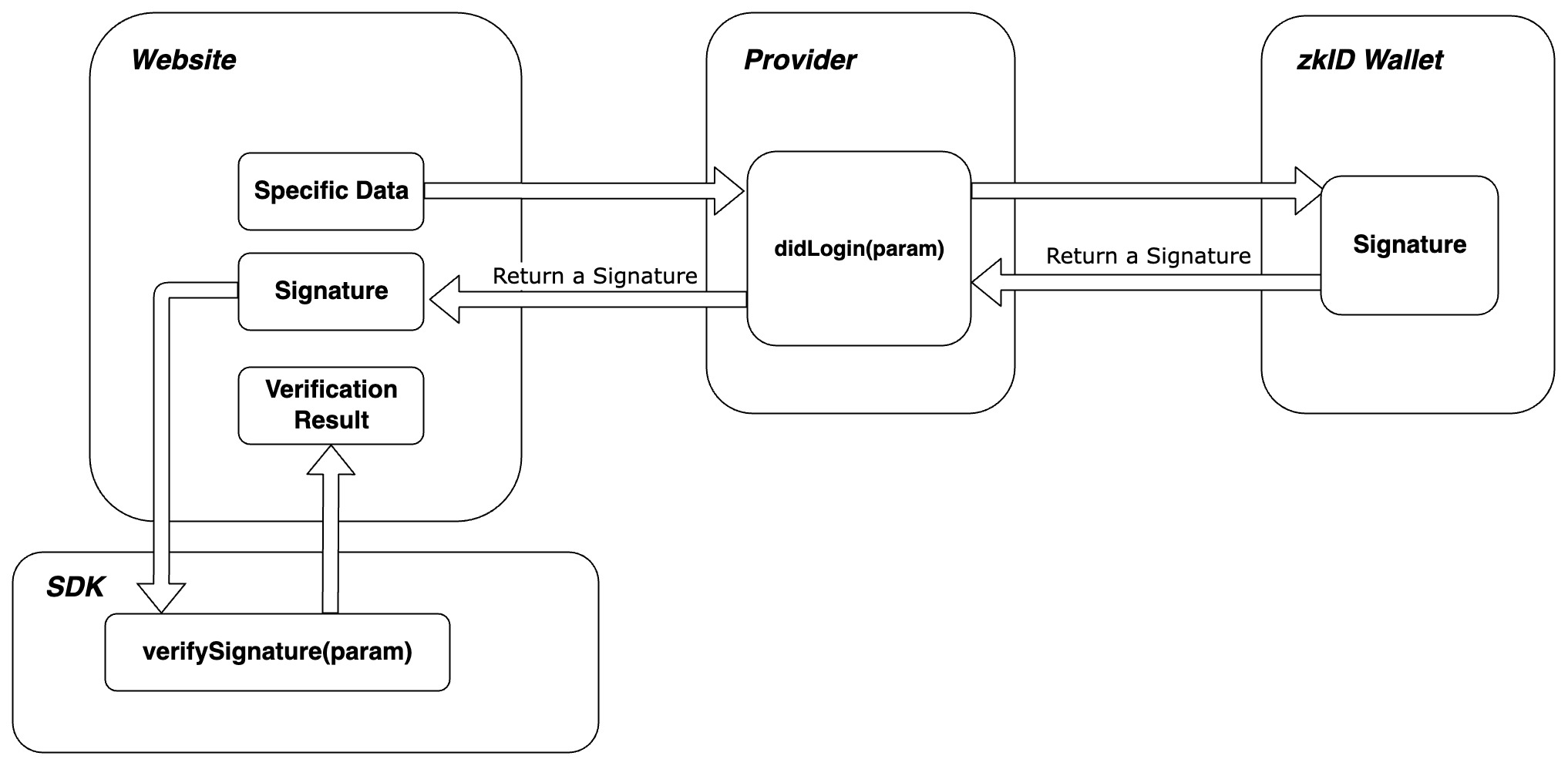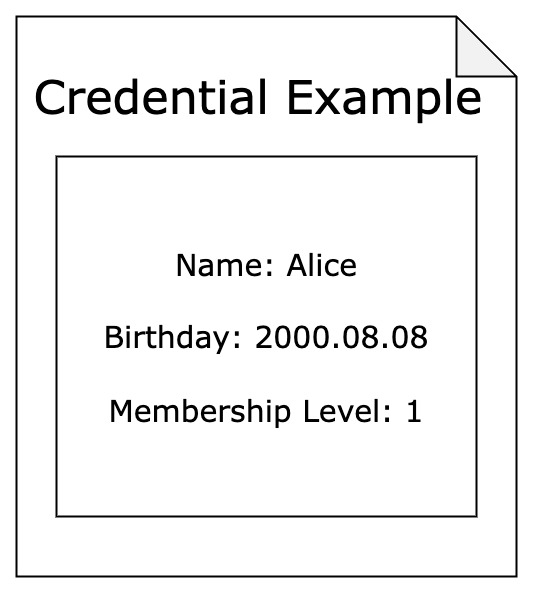Use Case
This section is used to demonstrate several usage scenarios of zkID Login. You can follow the zkID Login Website for a further understanding. Each use case matches with a scenario in the website guide.
Login with DID
As we mentioned before, DID could represent an entity. A Decentralised Identifier (DID) is a string uniquely identifying each user. Apart from the DID, the owner of DID should also own DID-Keys, which contains different keys for multiple usage. Do not ignore DID-Keys, it plays a very important role here.
In the DID Login Process, the developer would ask the User to sign on a specific data and thus receives a Signature. By verifying the Signature's validity, the developer could authenticate the User's identity.

Login with Digest Disclosure
zkID Login provides a brand new way for Service Providers who need to verify users identity. With the advent of the web3.0 era, users are more and more aware of protecting their private data, and they are more inclined to keep their data in their own hands rather than hand it over to a third party.
All the service provider needs to do is to set the identity restriction of their target users. Here is a simply example (You could check more details about the example is our zkID Login Website:
mockDaoonly allow their employees to login its official website. Each employee obtains amockDao Membership Credentialon the first day of their work, which is attested and issued bymockDao. The credential contains each worker's Name, Birthday, Membership Level, as the Credential Example shows below.

Assuming that, Alice imports this verifiable credential to zkID Wallet and tries to login mockDao's official website. All Alice needs to do is to prove that she owns a
mockDao Membership Credentialattested bymockDaousing zkID Wallet. The Method to be used, which best fits this situation, should be Digest Disclosure of a credential.(Because, what matters here is the existence of such a Membership Credential, Click Here to learn more about three types of Disclosure)So, all the things that
mockDaoneeds to do is using the API offered by zkID Login to request a Digest Disclosure (in the case above) and can then easily determine whether the user is allowed to login.
Login with Selective Disclosure
zkID Wallet enables users to manage the usage of VCs more granular. They can make fine-grained decisions about what information to share in a credential, without handing over the whole credential.
For example, a
mockDao Membership Credentialcontains Name, Birthday, Membership Level. In the Voting Process, theVoting Websiteonly allows those whoseMembership Level > 2to vote on some proposals. In this scenario,Voting Websiteonly care about this property, it definitely could use zkID Login Selective Disclosure to accomplish that. Via zkID Login, theVoting Websitewon't have access to any other information of Alice expect herMembership Level, which protect Alice's privacy to the greatest extent.
To explore how zkID Login works, start with the Basic Concept which illustrates several key components in zkID Login.
Read API Reference to get more specific details about how to interact with zkID Login system.
Last updated